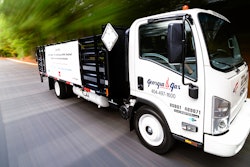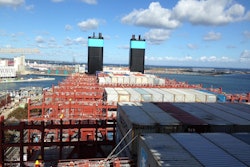
Food and beverage fleets continue to adopt fuel-saving solutions to support their own and their customers’ sustainability initiatives, according to the June Food Logistics. These measures consist of alternative fuels, more efficient engines, electronically controlled transmissions, aerodynamics, idle reduction systems, tire inflation monitoring, temperature tracking, driver performance monitoring and increasingly, onboard computer management.
The North American Council for Freight Efficiency, a nonprofit organization, studied 14 major fleets last year and quantified adoption levels for 68 transportation efficiency technologies. The study found the fleets adopted 30 to 54 percent of the available technologies.
The switch to alternative fuels is one of the most capital intensive choices facing transportation companies, given the varying available infrastructures, tax credits and incentives, and the need to train drivers and technicians. The declining price of diesel in the past year has slowed investment in alternative fuels, but most observers expect investment will rebound along with the price of diesel.
Schwan’s Home Service Inc., a manufacturer and distributor of frozen food serving 47 states, has utilized propane fuel vehicles since the 1974 oil embargo and has expanded its efficiency initiatives ever since. While the impetus for switching to propane fuel, also known as liquefied natural gas, was economic, the company now views sustainability as an equally important goal, says Tim Koeppl, senior fleet director for the company.
Schwan has approximately 3,000 propane vehicles out of a 4,200-vehicle fleet. The company has propane fueling stations at the majority of its depots.
The switch to propane has been economically and environmentally advantageous, Koeppl says. At this writing, the spot price for propane was around 45 to 49 cents per gallon.
Schwan also invests in idle shutdown systems to improve fuel efficiency. The company has worked with its supplier partners in recent years to develop lighter weight boxes to further improve fuel savings.
Like many other fleet operators, onboard computers have proven to be among the most helpful tools in improving fuel efficiency. Koeppl says that certain Isuzu engines are equipped with mileage and idle tracking devices. The company can monitor braking and idling, thanks to the capabilities of the onboard computer system.
To read the entire article, click here.














